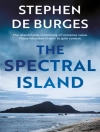Edgar Wallace’s ‘Flat 2′ is a masterful foray into the realm of crime fiction, intricately blending suspense with sharp social commentary. Set against the backdrop of the early 20th century, Wallace employs a concise yet evocative literary style that captures the zeitgeist of the post-World War I era in Britain. The narrative unfolds within a labyrinth of deception and social intrigue, meticulously crafted with Wallace’s characteristic flair for vivid characterization and plot twists. This novel reflects not only the gritty realities of urban life but also serves as a precursor to the modern thriller genre, employing a fast-paced structure that keeps readers on the edge of their seats. Edgar Wallace (1875-1932) was a prolific English writer, renowned for his contributions to mystery and thriller literature. His diverse experiences as a journalist and war correspondent provided him with a keen insight into human nature and societal norms. This unique perspective undoubtedly influenced the themes within ‘Flat 2, ‘ as Wallace delves into the complexities of crime and morality, reflecting the turbulent social landscape of his time. For those seeking a gripping narrative that transcends mere entertainment, ‘Flat 2′ is highly recommended. Wallace’s ability to intertwine astute observation with engaging storytelling invites readers into a world where intrigue reigns, making it a must-read for enthusiasts of classic detective fiction and social commentary alike.
Over de auteur
Edgar Wallace (1875-1932) was an English writer known for his prolific literary output, having penned numerous novels, plays, and articles throughout his career. Born into poverty as Richard Horatio Edgar Wallace, he rose to become one of the most famous thriller writers of the early 20th century. Often under financial strain due to his extravagance, Wallace’s impetus to write was partly fuelled by the need to resolve his debts, which, in turn, resulted in a vast array of work produced at an astonishing rate (‘Lane, M., 1938. Edgar Wallace: The Biography of a Phenomenon. London: John Lane). His works encompass various genres, including crime, adventure, and historical novels, but he is especially remembered for his detective stories and contributions to the creation of the modern thriller genre (‘Smith, A., 1984. Edgar Wallace: A Critical Study. New York: Greenhouse Publishing). ‘Flat 2′ is one of his classic mysteries, showcasing Wallace’s characteristic blend of suspense, intricate plotting, and colorful characters that keep readers engrossed until the very end. Renowned for his ability to spin yarns that captivate the imagination, Wallace’s style is intense yet accessible, marked by fast-paced narratives and an uncanny knack for dialogue that conjures the zeitgeist of the era. His influence on the thriller genre endures, and his works remain in print, a testament to their lasting appeal (‘Clark, N., 1987. Edgar Wallace: Each Way. London: Robert Hale).












